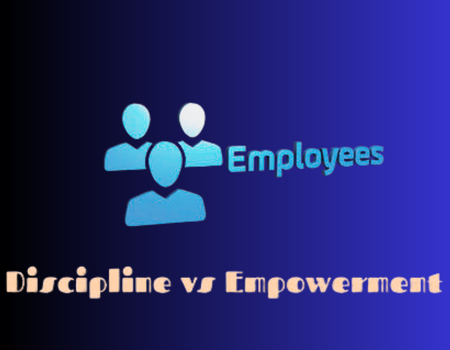Empowerment for Employee and Organizational Success: Treating Employees as Adults
Speaker: Bob Oberstein
Speaker Designation: Arbitrator, Mediator/facilitator, Fact-finder/Investigator, Trainer and Educator

Speaker: Bob Oberstein
Speaker Designation: Arbitrator, Mediator/facilitator, Fact-finder/Investigator, Trainer and Educator

When leaders don't treat their employees as competent, independent adults, they create some of the most significant barriers to an organization's success. Workers are adults with responsibilities and obligations. It seems obvious, but so many people are treated like children at work: too much oversight, micromanagement, and employer reactions that hinder rather than enhance performance, especially when it comes to traditional discipline as the “go-to” default for performance/behavior problems.
Tired of applying the same types of discipline and still getting the same old mediocre or short-lived results? Or maybe it was a “righteous” discipline, but it still was overturned or mitigated by a hearing officer or arbitrator. If so, you might be ready to broaden your horizons and consider how treating employees like adults not only avoid these issues but empower employees to act like adults which can also result in positive changes to not only their conduct and performance but to your bottom line as well.
Disciplining an employee is the start of what can be a long, costly, and relationship-damaging process with the potential to have that discipline reversed or lessened even if your facts are correct and you followed your process to the letter. Additionally, discipline does not always have a long-term, or sometimes even a short-term effect. So, the question is what is the purpose of discipline in your organization? Is it punishment? Or is it for behavioral change?
Would you like to stop the “shame and blame games” and perceptions of victimization resulting from discipline? If the answers are “yes” then this webinar is for you!
By learning and using the techniques discussed in this webinar you will be able to empower employees in the best interests of their own future as well as for the organization. Additionally, should you have no other choice but to proceed with discipline these methods can help you to make a good case even better.
Is traditional discipline always the best choice? Does it always provide the best result? How productive is it for parties to expend resources in the grievance/appeals process or before a federal/state/local board or commission to make its case? And even if the facts are clearly on your side the discipline might still be mitigated or even reversed!
Alternatively, are there better options, and if so, what are they and how do they work? The answer is “yes” There are options and when used properly they can promote and enhance the empowerment of all parties. Can such options serve to de-escalate grievance/appeals procedures? Again, the answer is “yes” and this webinar will introduce several alternative approaches designed to evolve your disciplinary process from punishment into empowerment and accountability.
Empowerment for employee and organizational success is a transformative approach that revolves around treating employees as responsible adults within the workplace. By acknowledging employees as capable and accountable contributors, organizations can create a culture that fosters innovation, collaboration, and individual growth. Empowering employees involves providing them with the tools, resources, and support necessary to make informed decisions, take ownership of their work, and contribute meaningfully to organizational objectives. By embracing this mindset, organizations can cultivate a motivated and engaged workforce, leading to increased job satisfaction, higher productivity, and sustained success. Empowerment becomes a cornerstone for building resilient and adaptable organizations in today's dynamic and competitive business landscape.

Bob Oberstein has over 52 years of Labor/Employee Relations experience on all sides of the labor-management table including as a neutral (arbitrator, mediator) in both the public and private sectors. He has served as a Commissioner, Maricopa County's Judicial Merit System Review Commission; Member, City of Phoenix Fire and Police Pension Boards; and Member/Chairman, City of Phoenix Civil Service Board. He is also the recipient of the Federal Mediation and Conciliation Service (FMCS) Director's Certificate of Recognition for Achievement in Promoting Positive Labor-Management Relations. Bob has served as Director, of the Labor Management Relations Program at Ottawa University, Phoenix (OU), Arizona where he taught conflict resolution, grievance processing, arbitration, and negotiation among other courses. He also served OU as Ombudsman for all student, faculty, and support disputes as well as the Disabled Student Liaison and received recognition in "Who's Who Among America's Teachers.
Bob currently mediates in the Family, Civil and Small Claims courts in the State of Washington and serves on the permanent panels/rosters for the FMCS Arbitration Roster (Regions 1, 2, 4, and 7); Oregon Employment Relations Board (OERB); Washington Public Employment Relations Commission (PERC); State of California Mediation and Conciliation Service (SCMCS) Public Employment Relations Panel; American Arbitration Association (AAA) Workplace Investigation Panel; Arizona Department of Education (ADE) Hearing Officer Panel; Eglin Air Force Base & American Federation of Government Employees Local No. 214 Arbitration Panel. In the past, Bob served as mediator and arbitrator on the employment, labor, commercial, and construction panels for the American Arbitration Association and for Financial Industry Regulatory Authority (FINRA). He was also the initial trainer and advisor for the U.S. EEOC’s Phoenix Regional Office’s mediation program where additionally, he served as a mediator. Bob has also served as facilitator/mediator for the Interest-based bargaining process for several labor negotiations as well as being a Special Master (Arb-Med) in labor-management grievance resolution.
Bob holds a BA in English/Education from St. John's University, a Master of Science in Social Science and Graduate Certificate of Labor Studies from Long Island University, and a Master of Jurisprudence in Labor and Employment Law from Tulane University Law School.